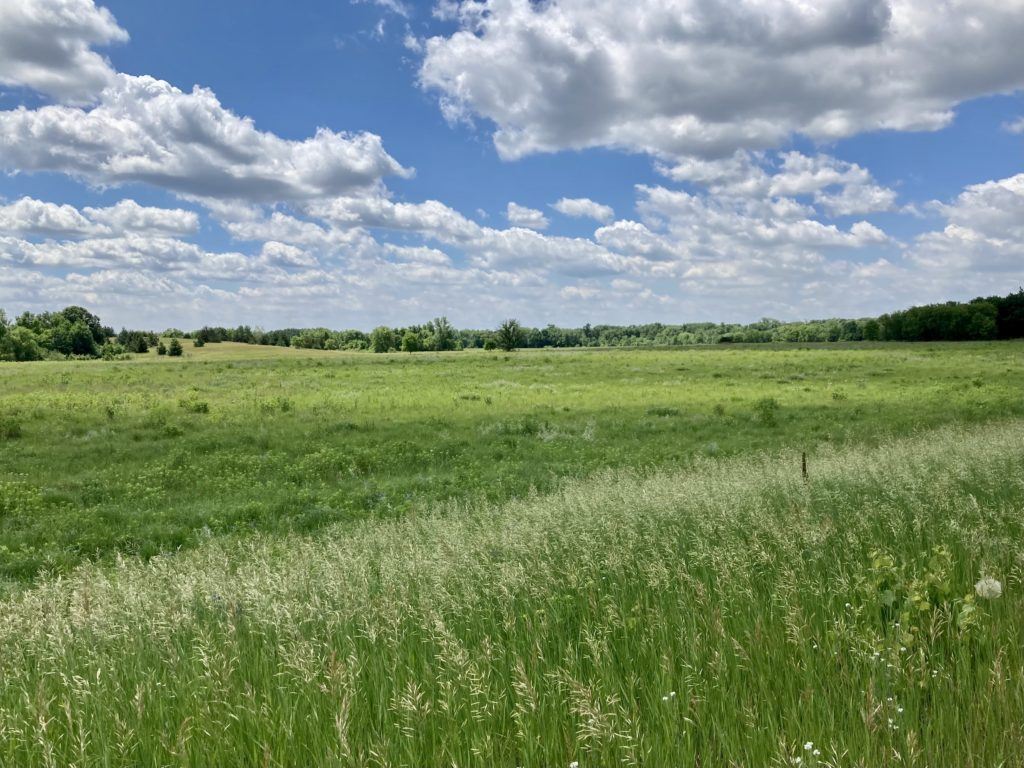Prairie Restoration and Pocket-sized Toads
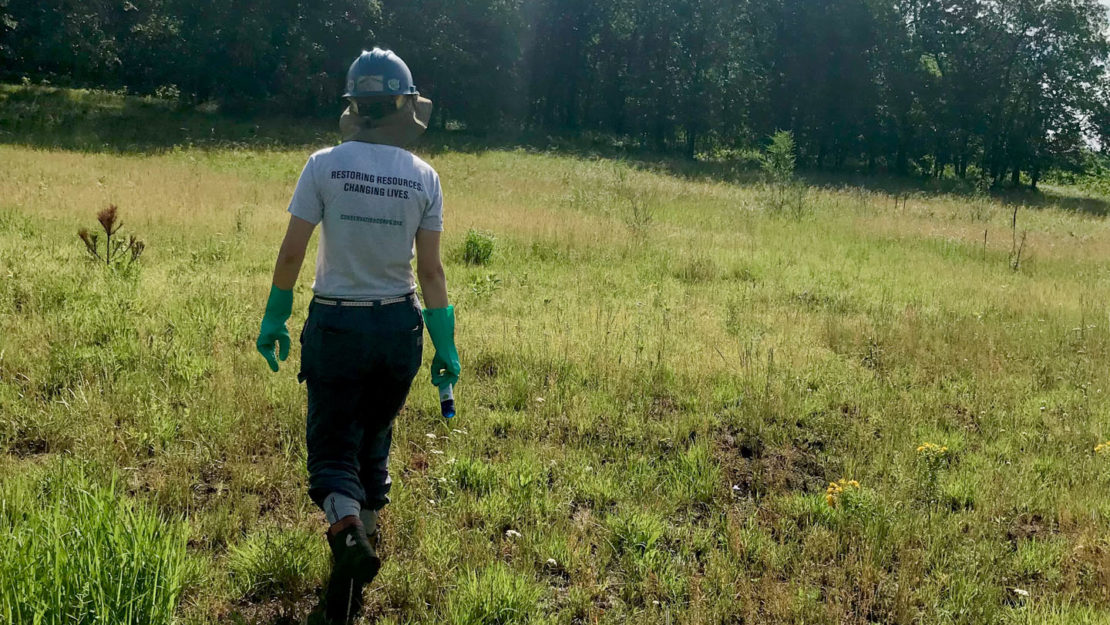
By Madeline Peterson, Anoka Field Crew Leader / AmeriCorps Member
Summer is in full swing! The days are long and hot, and there’s a lot of work to be done in Anoka County Parks.
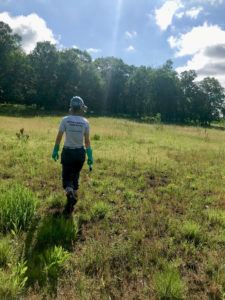
Field crew sizes vary, sometimes crews have to fit six people into a truck and sometimes they only have two or three Corpsmembers. I’ve been an Anoka crew leader without a crew for several months this year, tagging along with Anoka County Parks staff instead of leading other Corpsmembers. But for a few months this summer, I have one crewmember and we can do projects on our own!
One project we’ve been working on is prairie maintenance and restoration. Only 1% of Minnesota’s tallgrass prairies remain. Tallgrass prairies are full of perennial plants with deep root systems and adaptations to fire. The rich and fertile soil of tallgrass prairies made it effective for conversion to farmland, and most of Minnesota’s 18 million acres of prairie were plowed over. Today, restoration and reconstruction efforts can bring back some of the benefits of this diverse ecosystem type.
Prairies provide more than just natural resources and ecosystem services though, they can also be incredibly beautiful. When working in these areas, I find myself awestruck by fields of grass rippling in the wind, with clumps of vibrant wildflowers sticking out like blobs of paint on a green canvas.
One way we have helped with prairie restoration in Anoka County is by collecting seeds from established prairies that we can sow in prairie restoration sites. We’ve also been removing invasive species from prairies to reduce the competition for native plants.
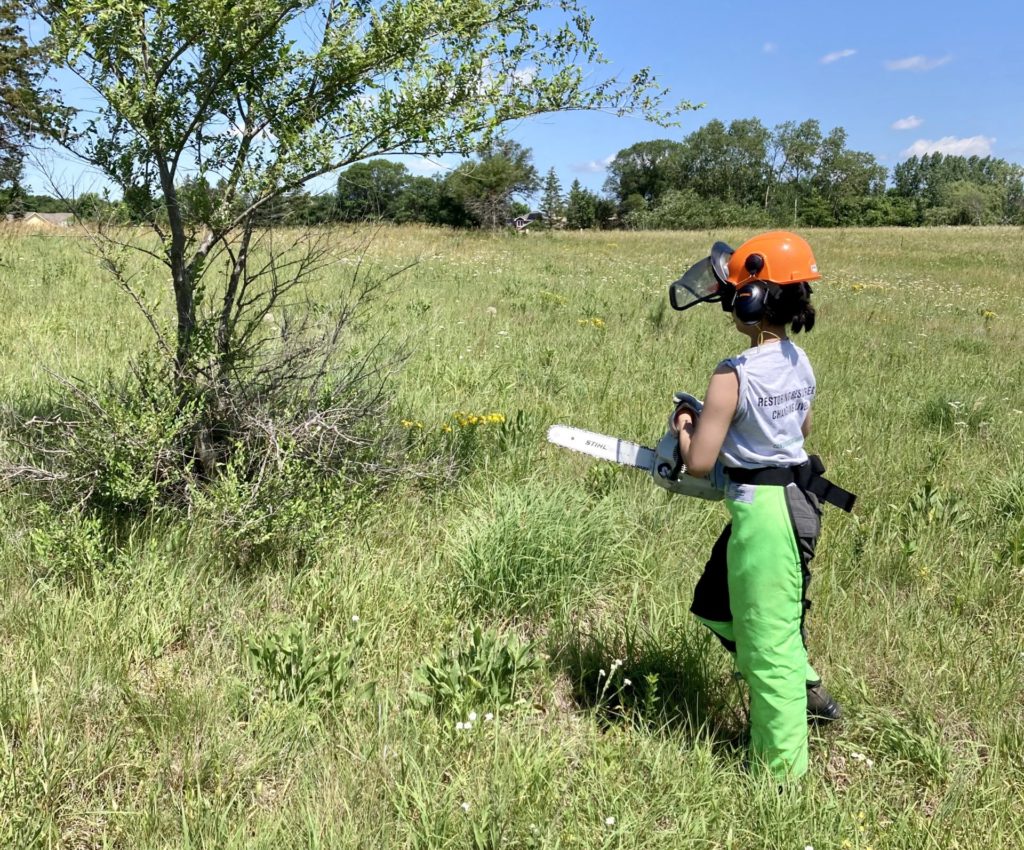
Invasives like Siberian elm take up space, sun, and nutrients that native prairie species could be using. Siberian elm is an aggressive seeder and can invade and dominate a disturbed prairie in just a few years. By reducing this invasive species, we are improving the prairie and letting native plants establish without invasive competition.
One of my favorite parts of field work so far this summer is encountering cool plants and animals. We had some fun animal sightings this month, including a tiny toad and a softshell turtle that surprised us while we were walking down a trail.
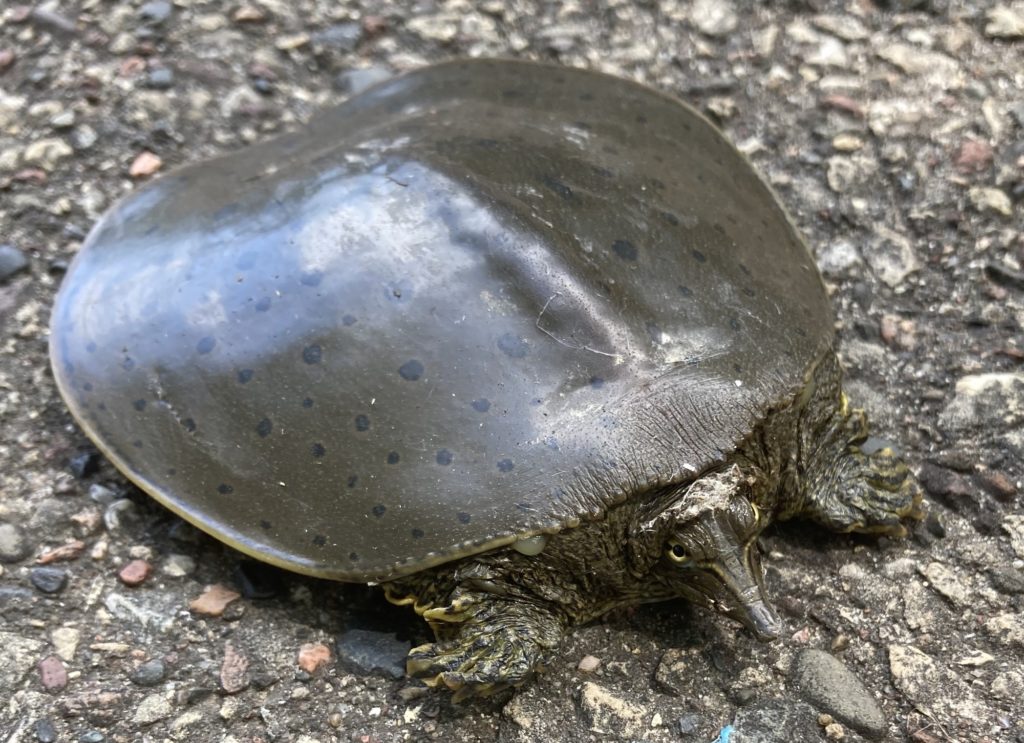
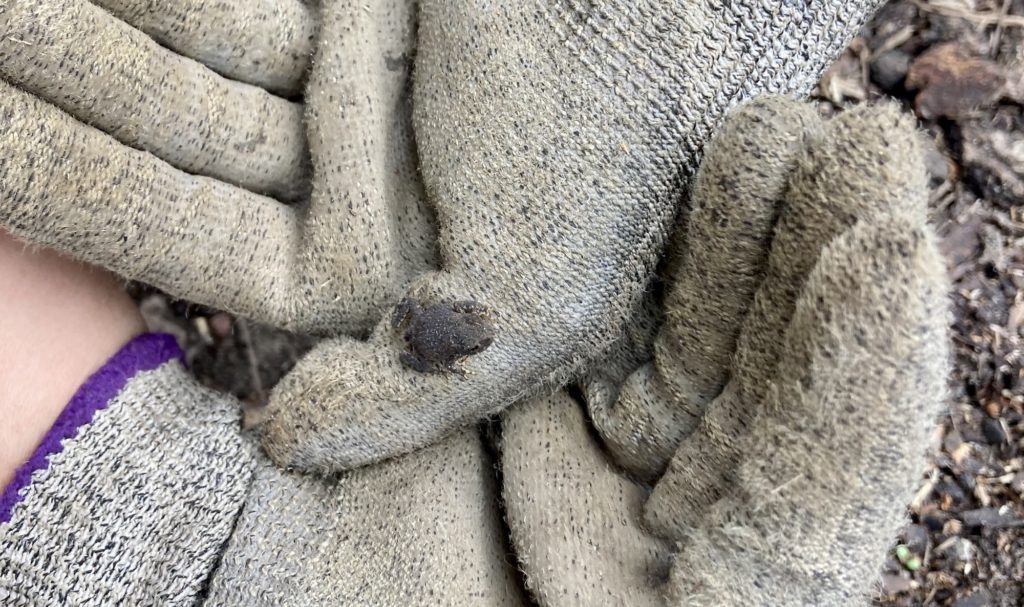
While we were collecting wild lupine seeds, we found a coyote den! We were just barely able to see the pups shuffling around in the dark, waiting for their mother to return with food. The grass near the den was tamped down, they must have been playing there recently.
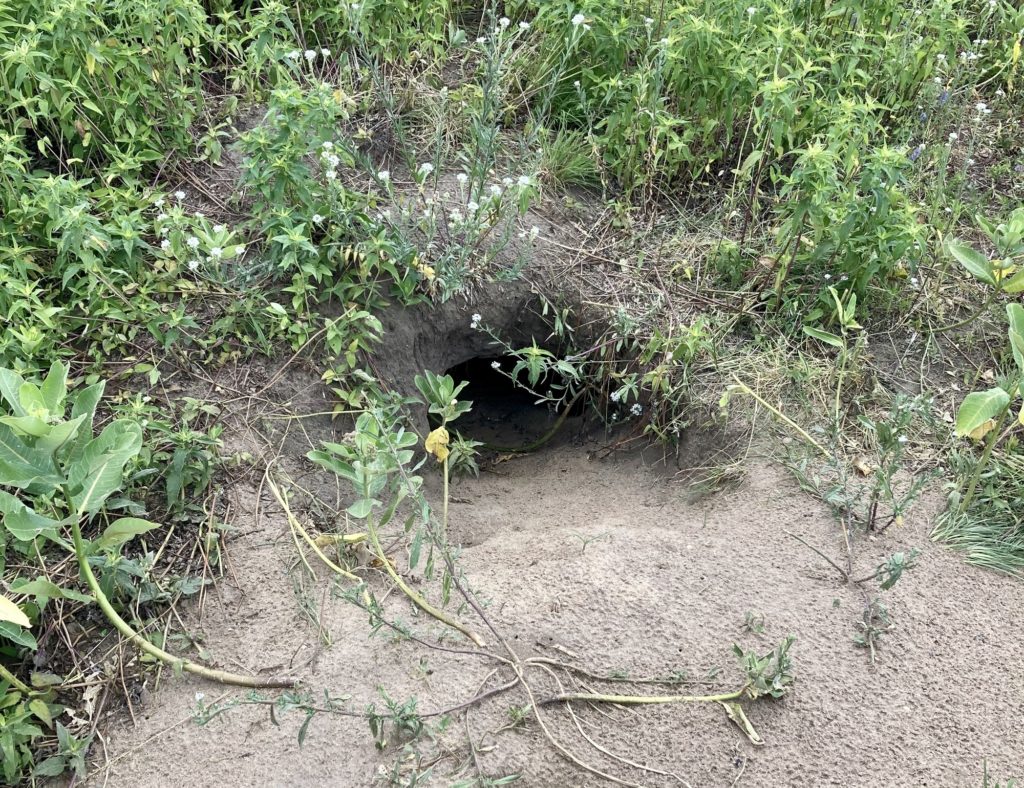
I can’t wait to see what animal sightings and projects we get to experience next!
